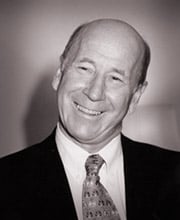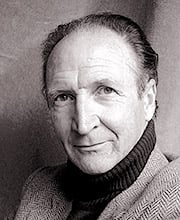The NAB Blog
Learning on the go
By Nicolas Soames
1 April 2010
I have always regarded audiobooks as a prime learning medium. Of course, as all audiobook aficionados will know, there are few pleasures more delightful than being totally captivated by a story, well told by a charismatic voice. It is such a personal experience to have a book brought to life in the privacy of one’s own ear, one’s own imagination.
But it is also a perfect way to learn. It began with languages, of course. You are in the car, on the train, walking from metro to bus stop, and you can learn away. I have even known conjugation to take place upon a bicycle, though this is not to be recommended.
However, it can be totally engrossing to go deep into The History of Opera or Gibbon’s The Decline and Fall of the Roman Empire while stuck in a traffic jam, or waiting in a queue for a bus.
Of the seven new titles this month two are key non-fiction titles, though they are very different from each other.
Apart from the Olympics, no sporting event attracts more billion viewers than soccer’s World Cup. Brian Glanville’s account of its great moments and its tribulations, The History of the World Cup is read by former Arsenal goalkeeper Bob Wilson. It is absorbing even to those with a passing interest in 4:3:3 formation. And it is certainly the perfect curtain raiser to this year’s event in South Africa. We are re-releasing it with the addition of the 2006 report.

Bobby Charlton
We update this history every four years in time for The Great Event, but I never tire of it. I feel compelled to remind you of the outstanding extra – the 40-minute interview with Sir Bobby Charlton. To hear this sporting icon speak about his World Cup memories is so very special… and that is from one who has spent his sporting life on a judo tatami, rather than on the soccer pitch.
A few years ago, we (sports reporter Barnaby Chesterman, engineer Dan King and I) went up to Manchester United and sat in the Director’s Box one Saturday morning, when the grass was green beneath us – but silent. And with the DAT recorder going, we listened to Sir Bobby recall his experiences. What an hour! I have met quite a few icons in my time (I was in Rome at the Three Tenors concert in Caracalla in 1990) but I will always regard Bobby Charlton as one of the truest of the greats. As have so many millions around the world.
In 1966, I was high up in the Ethiopian mountains overlooking the amazing Rift Valley while listening on a satellite radio to the final between England and Germany. Ethiopian goatherd boys clustered around, though they couldn’t understand a word. But they all knew the name of Bobby Charlton. How extraordinary…
So, even if you are not a football fan… you won’t regret buying or downloading this history, if only to hear Sir Bobby for yourself.
The second non-fiction release is, perhaps, the most startling of all. Darwin – In a Nutshell has reached the finals of the Audie Awards, the top audiobook awards in the US (the winners will be announced on 25 May). Peter Whitfield is both the author and the reader, and Darwin was a percipient selection by the judges because it presents the topic in a remarkably succinct but satisfying manner.

Peter Whitfield
Now Whitfield has done the same with The History of Science, another original text for Naxos AudioBooks. Is it possible to cover such a massive topic in a mere five hours? To not only account for but actually explain the discoveries of mankind from the ancient records to the cutting edge of genetics, taking on, along the way, developments in physics, astronomy, geology, chemistry, biology, medicine, and even going down the byway of psychology and anthropology?
Well, ladies and gentlemen, I wouldn’t recommend this amazing account for the bicycle. You may be able to take on the third law of thermodynamics (by the way, thermodynamics means simply ‘heat-work’ – Ah, I see now! Why didn’t my physics teacher say that – I would have understood!) and be surprised by the fact that it was as late as 1826 with Karl von Baer in Germany that the mammalian egg and its journey into an embryo was first identified though ‘the mechanism of fertilisation was still unknown’. And you may be equally surprised that it was Descartes who, though ‘wildly wrong in his theories’, laid the foundations of the Age of Enlightenment in France by ‘urging scientists to look for the secret mechanisms at work beneath the surface of nature’s forms’. But quantum and astronomy on a bike may result in a wobble because the numbers are so huge and so puzzling.
However, perhaps not, because clarity is one of Peter Whitfield’s great assets. As with Darwin and The History of English Poetry (yes – he encompasses a very wide brief), The History of Science is truly accessible to all. And there it is, an overview in five hours. And if you can remember it all, you may never need be stumped again at a dinner party, or confused about the order of things. Or why an apple falls from a tree and hits upon the head a young investigator considering the order of things.
Nicolas Soames
« Previous entry • Latest Entry • The NAB Blog Archive • Next entry »